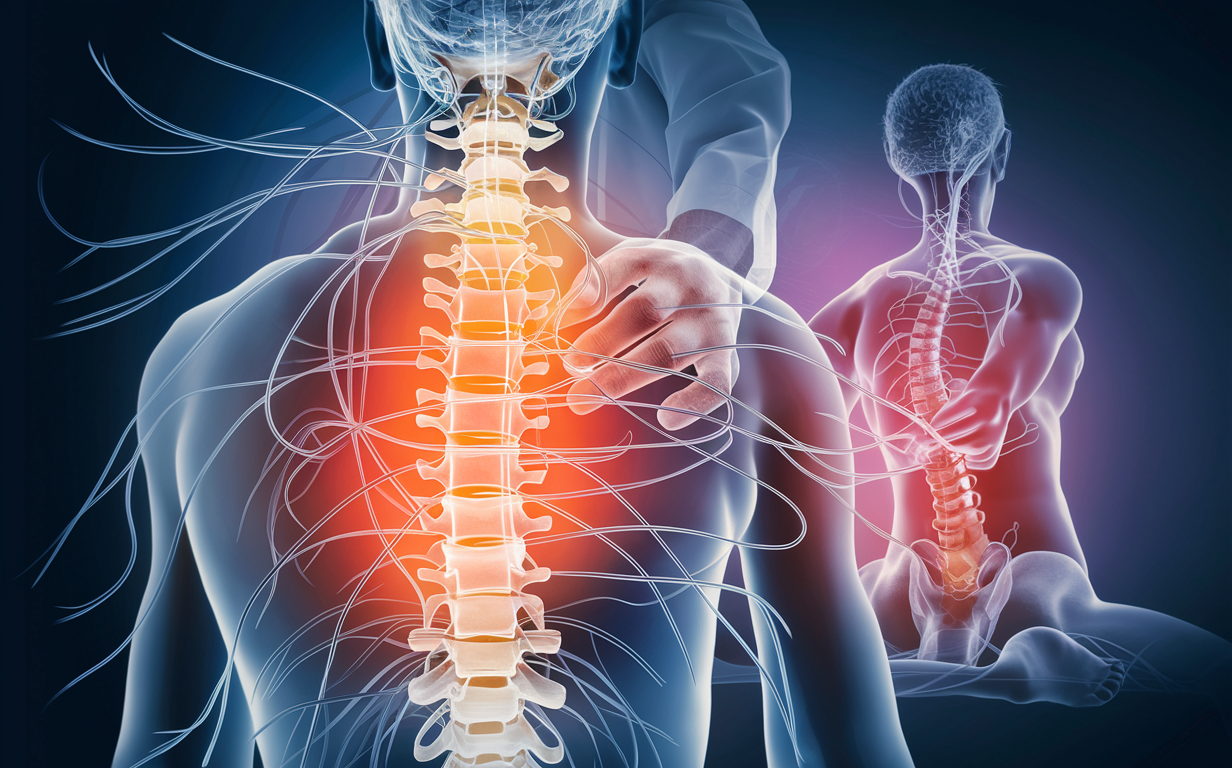The Gut-Brain-Liver-Bone Connection: t’s Not Just About Bone!
Bones are dynamic organs constantly undergoing remodeling processes, and maintaining bone health requires the coordinated effort of several organ systems, including the liver, gut, and brain.
This intricate interplay is essential for balancing bone-building (osteoblast) and bone-breaking (osteoclast) activities, ensuring the strength and integrity of our skeletal framework.
The Liver: A Crucial Player in Bone Health
Think of the liver as your body’s unsung hero, tirelessly working behind the scenes to support your overall health. Often called the "Metabolic Brain," it’s no surprise the liver does far more than detoxification—it plays a vital role in maintaining strong bones too. Through a complex interplay of hormones and enzymes, it regulates bone metabolism and mineral balance, ensuring your skeleton stays robust and healthy. Let’s dive into how these elements work together to keep your bones strong!
Vitamin D Metabolism: The Liver’s Support for Strong Bones
Your liver is a key player in the body’s vitamin D factory. When you get sunlight or take vitamin D supplements, your liver converts vitamin D3 into calcidiol, a storage form of vitamin D. This is then sent to the kidneys, where it’s turned into calcitriol, the active form that helps your gut absorb calcium. Without a healthy liver, this process falters, leading to weaker bones.
The liver also helps regulate hormones like parathyroid hormone (PTH), estrogen, and testosterone, which are essential for bone strength. Estrogen keeps the outer layer of bones strong, while testosterone promotes bone growth. Both rely on the liver for proper metabolism and balance.
The Liver: The Body's Metabolic Command Center
The liver manages cholesterol levels, which are crucial for bone health. It produces an enzyme called LCAT (Lecithin-Cholesterol Acyltransferase), which helps transport cholesterol and supports bone-building cells (osteoblasts) while reducing bone-breaking cells (osteoclasts). When the liver is damaged, this balance is disrupted, accelerating bone loss. (Source)
The Liver's Role in Glucose and Bone Health
The liver’s impact on bone health is closely tied to its role in regulating glucose metabolism. It produces insulin-like growth factor-1 (IGF-1), which drives bone growth and maintenance. It also produces SIRT2, a protein that helps regulate insulin sensitivity and oxidative stress. When liver function is impaired, these processes are disrupted, weakening bones. (Source)
Exosomes: The Liver's Messengers
The liver releases tiny messengers called exosomes, which carry proteins, lipids, and RNA to other tissues, including bones. These exosomes can influence bone remodeling, promoting or inhibiting bone-building activity. In conditions like diabetes or liver disease, exosome content changes, potentially worsening bone loss. (Source)


Brain and Nervous System Influence on Bone Health
The brain, often called the "Master Controller," doesn’t just manage thoughts and movements—it also plays a big role in keeping your bones strong. It communicates with bones through hormones and signaling pathways. For example, the hypothalamus and pituitary gland release hormones that help regulate bone remodeling. The brain also senses energy levels, physical activity, and stress, all of which can impact bone density.
The nervous system, including the enteric nervous system (ENS) in the gut, directly influences bone health. Chemicals like substance P (which promotes bone growth) and vasoactive intestinal peptides (VIP) (which reduce bone breakdown) help maintain a balance between bone formation and resorption. This creates a feedback loop where the brain affects bone health, and bones, in turn, send signals back to the brain.
Stress can disrupt this balance. When stress levels rise, the body releases cortisol, a hormone that can weaken bones by increasing bone breakdown and reducing bone formation if levels stay high for too long. Similarly, serotonin, produced in the gut, can directly influence bone cells, further highlighting the deep connection between the gut, brain, and bones.
Inflammation in the brain, often seen in neurodegenerative conditions, can also harm bones. Inflammatory molecules like TNF-α and IL-6 increase bone breakdown, raising the risk of osteoporosis and fractures.
The brain also supports bone health indirectly. For instance, the pituitary gland releases growth hormone, which tells the liver to produce IGF-1—a key factor for bone growth and maintenance. Another important player is leptin, a hormone that regulates hunger and energy balance. Leptin signals the brain to maintain bone mass, but if the brain becomes resistant to leptin, it can lead to weaker bones as the body prioritizes immediate energy needs over long-term bone health.


In a Nutshell: Synergistic Effects
The Liver: The liver is more than a metabolic hub—it’s essential for bone health. It metabolizes vitamin D, ensuring calcium absorption, and produces hormones like IGF-1 to support bone formation. It also regulates insulin and SIRT2, maintaining the metabolic balance needed for strong bones. Additionally, the liver releases exosomes, tiny messengers that influence bone remodeling and inter-organ communication
The Gut: Your gut is a powerhouse for bone health, housing trillions of bacteria that produce short-chain fatty acids (SCFAs). These SCFAs boost bone-building cells (osteoblasts) and reduce bone-breaking cells (osteoclasts). The gut also absorbs key nutrients like calcium and vitamin D, providing the building blocks for strong bones. An imbalanced gut microbiome can lead to inflammation and weakened bones, underscoring its critical role in bone health.
The Brain: The brain acts as the master regulator, coordinating bone health through the hypothalamus and pituitary gland. It produces growth hormone and IGF-1, driving bone growth and maintenance. The brain also senses energy balance and stress, influencing bone mass through hormones like leptin and serotonin. Chronic stress, neuroinflammation, or leptin resistance can disrupt this balance, increasing the risk of osteoporosis.
Conclusion: The liver, gut, and brain work in harmony as a dream team to maintain strong and healthy bones. The liver metabolizes essential nutrients and hormones, the gut ensures optimal nutrient absorption and produces bone-supporting compounds, and the brain orchestrates the entire process through hormonal and neural signals.
Together, they create a synergistic effect that balances bone-building and bone-breaking activities, ensuring skeletal strength and resilience. By supporting the health of these three systems, you can build a solid foundation for lifelong bone health.
Return to:
Gut Health and Bone Strength
The gut, often called the "Second Brain," is home to trillions of bacteria that play a vital role in digestion, overall health, and even bone strength. These microbes help break down food, absorb nutrients, and communicate with other organs, including your bones.
A healthy gut microbiome boosts bone density and strength by producing short-chain fatty acids (SCFAs) when digesting dietary fiber. SCFAs encourage bone-building cells (osteoblasts) and slow down bone-breaking cells (osteoclasts), keeping your bones strong.
On the flip side, an imbalanced gut (called dysbiosis) can lead to inflammation and the release of harmful substances that weaken bones. For example, inflammation can increase bone breakdown, reducing bone density. The gut also absorbs essential nutrients like calcium, phosphorus, magnesium, and vitamin D, which are crucial for bone health. A healthy gut ensures these nutrients are properly absorbed, supporting strong bones.
But the gut’s role doesn’t end there—it also affects hormones that regulate bone health, such as calcitriol, adiponectin, and leptin.
Calcitriol (Active Vitamin D): Produced with help from the liver, calcitriol promotes calcium absorption in the gut. If the gut or liver isn’t functioning well, this process is disrupted, affecting bone strength.
Adiponectin: This hormone supports bone-building cells and helps regulate glucose metabolism. Poor gut health can lower adiponectin levels, leading to inflammation and increased bone loss.
Leptin: Produced by fat cells, leptin signals the brain to balance bone formation and breakdown. This shows how the gut and brain work together to maintain bone health.
Note: The relationship between gut health and bones is a two-way street. Hormones like leptin and adiponectin can influence gut bacteria, while gut microbes can also affect these hormones. This highlights how important a balanced gut is for strong bones and overall health. (Source)


